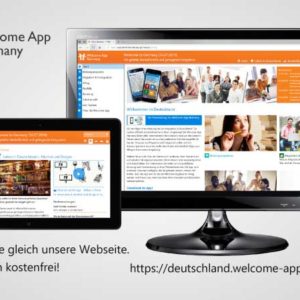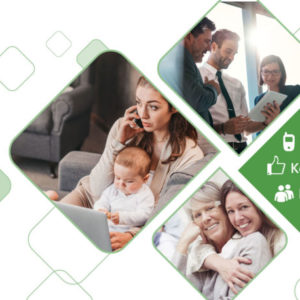Interview with welcome app team member Hendrik
Hendrik Lösch, senior developer at Saxonia systems and responsible for the Android and iOS version of welcome app, again and again speaks at industry conferences about the app and everything connected with it technically but also human. Also on this year's MobileTech Conference in Munich, it was as a spokesman and was interviewed in a follow-up to his session by Tom Wießeckel (jaxenter.de). The full article is available here: "Integration help via Smartphone"
Some excerpts of the interview:
Question: Mr. Lösch, can you briefly explain us who is exactly behind the welcome app?
Hendrik Lösch: Was initiated for the project in April 2015 within Saxonia systems AG by our Board Member Viola Klein. It was triggered by the PEGIDA protests us from the very beginning an affair of the heart to show that Dresden is an innovative, open and people-friendly city. With this concern, we could win the HeiReS GmbH located also in Dresden as a cooperation partner also in the shortest time, with which we work together now for a year on the project.
…
Question: Straight on the subject of refugees there is of course a barrier not to achieve that to be overcome. How have you solved the problem?
Hendrik Lösch: Requirement analysis, we had the advantage of working with students. These have described their needs during a course together with their teacher. In later analyses of our prototype, we had the advantage of having at least a translator available. In addition, that is also a Syrian colleague in our team who has been helping us with Arabic.
The content, we have consistently on simple and easily understandable texts, the first automatically, then by volunteers and future professional translator in the language transfer be. In addition, we put on a most unique Applikationsstruktur to provide little room for misunderstanding.
…
Question: What other technical challenges faced you during development?
Hendrik Lösch: The special features of the Arabic language have actually provided us some technical problems. Especially the changed write read direction produces some difficulties. Neither Cordova nor Ionic officially support this. Moreover, that the typical editors, to use as a developer, react very unpredictable when the write direction changes within a file.
Another point are the General translations of our dynamic data. Because any city can provide its own address and those in the future should be translated in more than six languages, we had to figure out a way how we can implement this in a hybrid app.
Question:… and what non-technological hurdles you had to make?
Hendrik Lösch: The biggest hurdle of such a project is the research and maintenance of the content. While one can proceed in two ways: either to build an editorial board, which maintains the content or using the crowd. We opted for the first of the two ways because you must schedule a huge workload for the quality assurance for crowdsourcing, unless you want to deploy permanently reliable information. Since the topic very polarized asylum in Germany, the expenses in this case is the higher.
That effort relativized from our point of view then the actual advantage of approach – namely, that the content theoretically by alone is created. The editorial also allows us to connect directly with cities and communities into contact. We will integrate the information into the app to provide a locally valid sign for arriving in Germany.
Last but not least, the financing of such a project is a challenge. While it is not so much the development itself, but the operation and content maintenance, who want to be funded in the long term. Even if the project even without profit intentions, at least the running costs must be covered to get it long time alive.
The full article is available here: "Integration help via Smartphone"



